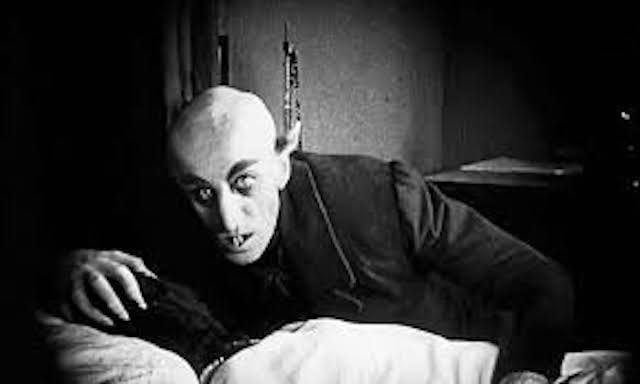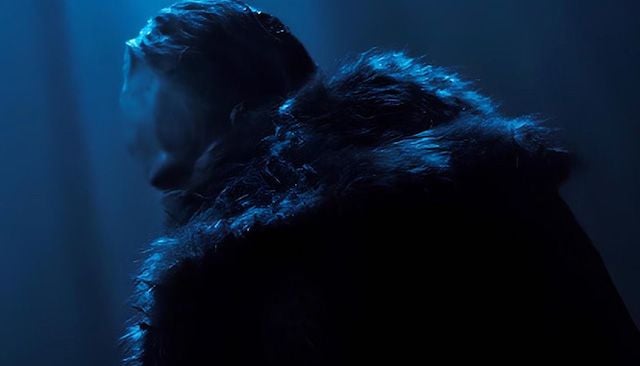"Nosferatu": What Makes This Classic Vampire Tale Intriguing
The gothic horror film "Nosferatu" is currently in theaters. The anticipation for this film has been immense (as evidenced by its box office earnings), and rightly so. Robert Eggers has long dreamed of creating a remake of the classic 1922 film "Nosferatu: A Symphony of Horror" by Friedrich Wilhelm Murnau. This film has long been a classic and still impresses with its expressionistic vividness even today.
Robert Eggers ("The Witch," "The Lighthouse") approaches the original with great respect, following and reinterpreting it, while also staying true to his own unique style. The slow, gloomy atmosphere and unhurried storytelling that are characteristic of Eggers bloom here in playful imagery.
Eggers wanders between color and black-and-white frames, occasionally prompting the actors to adopt the stylization of silent cinema. Although the characters in the 2024 film "Nosferatu" can speak, in certain scenes, they remind us of their "silent" predecessors with somewhat exaggerated performances, which in this film is entirely justified and considered a strength rather than a weakness.
The music, makeup, costumes, and set design all work together to recreate the atmosphere of gothic horror in a new way while maintaining the stylistic essence of the cult film.
What is the movie about?
So, the year is 1838. In a small German town called Wisborg, a young couple, Thomas and Helen Gutter (Nicholas Hoult and Lily-Rose Depp), live together. Thomas travels to Transylvania to make a deal for the sale of an abandoned estate with the mysterious Count Orlok (Bill Skarsgård), who resides among the Carpathian Mountains. Helen is supposed to wait for him with friends, Frederick and Anna Harding (Aaron Taylor-Johnson and Emma Corrin), but strange things begin to happen to her. When conventional medicine proves ineffective, Professor Albin Ebernart von Franz (Willem Dafoe) is called, convinced that the heroes face absolute evil.
How it was before
It’s worth noting that Murnau originally planned to adapt Bram Stoker's "Dracula," but the Prana Film studio could not acquire the rights to the novel. To continue working on the film, Murnau changed the names of the main characters and altered the plot somewhat. However, this did not save him from legal troubles. Nonetheless, the film was released and continues to endure.
Interestingly, the role of Knock in Murnau's film was played by Alexander Granach, who was born in the village of Verbivtsi in the Ivano-Frankivsk region. He first visited a Jewish theater in Lviv with his brother, after which he decided to become an actor.
 7
7 8
8 In 1979, Werner Herzog made another film about Nosferatu, starring Klaus Kinski in the lead role. In 2000, E. Elias Merhige directed "Shadow of the Vampire," which depicts Murnau making his film (with John Malkovich portraying the director) and Willem Dafoe as Max Schreck, the actor who played Count Orlok in "Nosferatu." Notably, Dafoe will also appear in Eggers' film. "Shadow of the Vampire" explores the rumors that the lead role in the film was played by a real vampire who satisfied his hunger with the warm blood of the actors and crew members.
And what about now?
Indeed, both Max Schreck from the original film and Bill Skarsgård look so convincing that it’s easy to believe in this story. After his role as the clown in "It," Skarsgård must again hide behind makeup that transforms him into a sinister infernal creature. However, the new Nosferatu is not just about a vampire; it embodies death itself, a horrific end, and the embodiment of evil. It surpasses even the popular Pennywise.
 9
9 0
0 Yet, Eggers is not merely a diligent stylist. He finds new colors, filling the frames with a unique language, skillfully mastering everything necessary: color, sound, casting, and light-shadow play all serve a common purpose. And the director successfully achieves it: his emotional impact on the audience rivals that of Murnau's innovations.
 1
1 2
2 However, today’s audience is much more demanding. Eggers compels them to quickly traverse the entire history of cinema, specifically the horror genre, employing every conceivable technique. Lily-Rose may very well claim the title of the new scream queen (the loud, desperate scream in horror films). In short, we have a practically perfect film. So perfect (much like his previous work "The Lighthouse") that it occasionally becomes tedious. Yet, it does not detract from the overall picture. And, of course, to appreciate the film's beauty and grandeur, it is best viewed on the big screen.
 3
3 4
4 And on a smaller screen, it is worth watching the 1922 film. Thanks to the new version, it has regained its popularity.